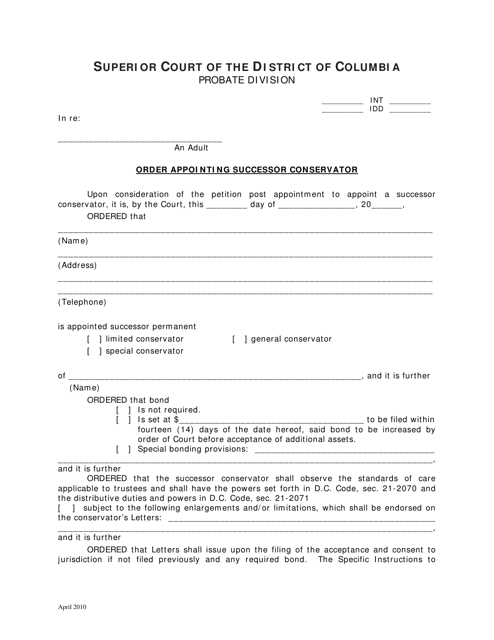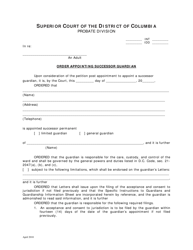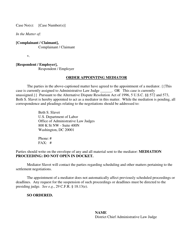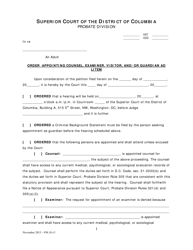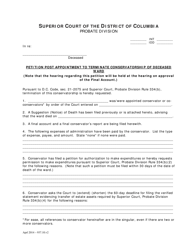Order Appointing Successor Conservator - Washington, D.C.
Order Appointing Successor Conservator is a legal document that was released by the District of Columbia Courts - a government authority operating within Washington, D.C..
FAQ
Q: What is an Order Appointing Successor Conservator?
A: An Order Appointing Successor Conservator is a legal document issued by a court in Washington, D.C. to appoint a new conservator to manage the affairs of a person who is unable to do so themselves.
Q: Who is a conservator?
A: A conservator is a person appointed by the court to manage the financial and personal affairs of someone who is unable to do so themselves, typically due to physical or mental incapacity.
Q: Why would someone need a conservator?
A: Someone may need a conservator if they are unable to manage their own affairs due to physical or mental incapacity. A conservator is appointed to ensure that the person's financial and personal matters are properly handled and decisions are made in their best interest.
Q: How is a conservator appointed?
A: A conservator is appointed through a legal process that involves filing a petition with the court, providing evidence of the person's incapacity, and having a hearing where the court determines whether a conservatorship is necessary.
Q: What is the role of a conservator?
A: The role of a conservator is to manage the financial and personal affairs of the person under their care. This can include paying bills, managing investments, making medical decisions, and ensuring the person's well-being.
Q: What is a successor conservator?
A: A successor conservator is a person who is appointed to take over the role of a conservator if the current conservator is no longer able or willing to fulfill their duties.
Q: What is the purpose of an Order Appointing Successor Conservator?
A: The purpose of an Order Appointing Successor Conservator is to officially appoint a new conservator to replace the current one, ensuring the continuity of care for the person under conservatorship.
Form Details:
- Released on April 1, 2010;
- The latest edition currently provided by the District of Columbia Courts;
- Ready to use and print;
- Easy to customize;
- Compatible with most PDF-viewing applications;
- Fill out the form in our online filing application.
Download a fillable version of the form by clicking the link below or browse more documents and templates provided by the District of Columbia Courts.
